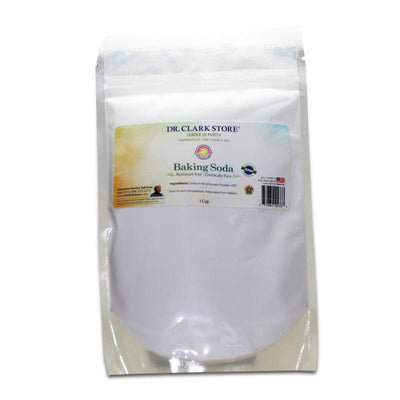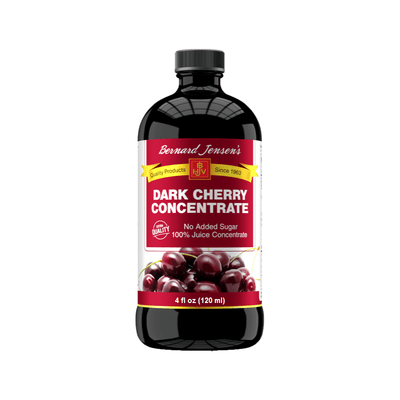Why Cloves, Wormwood & Black Walnut Hull are the Best Herbs to Kill Parasites

There’s a reason why many microbial cleansing formulas feature three all-star herbs for killing parasites: cloves, wormwood, and black walnut hull.
Treating parasitic infestations, whether you know you have one or not, is not a one size fits all deal. Prescription parasiticides are available, but they are designed to target a single species. They generally don’t have a broad reach and as with most prescriptions, they have side effects.
That’s why herbs may be the better choice because they don’t require a doctor’s prescription, they are easily accessible, they don’t contain the toxic, synthetic chemicals found in medications, and they are less likely to produce unwanted side effects. Further, herbs support the theory of strengthening the immune system and keeping intestinal flora in balance so that parasites are less likely to thrive. Compared to the prescription drug approach it’s easy to see why parasite cleanses with herbs and potent essential oils can be far more beneficial.
Let’s take a look at why cloves, wormwood, and black walnut hull should be among your top choices for parasite-killing herbs.
Cloves
Clove buds have been a medicinal staple for hundreds of years, most notably for their antioxidant and antimicrobial properties. The active compound believed to be responsible for these health benefits is eugenol.
Eugenol is thought to dissolve the hard casing around parasite eggs.
As a stand alone treatment, studies have shown the effectiveness of eugenol, often in clove essential oil form, against the intestinal protozoans Blastocystis and Giardia, as well as the blood fluke Schistosoma.
Wormwood
Wormwood contains an active compound called sesquiterpene lactone. This compound is thought to weaken an organism’s membrane. This includes some species of bacteria, such as Helicobacter pylori, the root cause of stomach ulcers.
Others claim that wormwood simply anesthetizes intestinal parasites, causing them to loosen their grip so that they can be eliminated with bowel movements.
A study from 2015 concluded that wormwood outperformed the standard treatment drug for Schistosoma flatworms. The chemical compounds in wormwood have also been studied for their effect on protozoan trypanosomes.
Black Walnut Hull
Black walnut derives its antimicrobial powers from the active compound juglone that is highly concentrated in the outer hull. If you need proof of just how potent juglone is, find a black walnut tree growing in nature and pay attention to what grows under it - very little. Juglone stunts the growth of organisms trying to invade the tree’s space. The same effect takes place on invading microbes in the body.
Studies show that juglone plays a role in triggering the death of Acanthamoeba and the protozoan Toxoplasma gondii.
Black walnut hull creates a toxic environment for many microbes without causing harm to the host.
It’s always best to get black walnut hull preparations derived from young, green hulls instead of brown, mature hulls. The green hulls have a higher concentration of juglone over brown hulls, thus better antiparasitic effects.
While each herb alone has great antiparasitic properties, using the three herbs together has merit. Natural healers believe that cloves are effective at killing parasite eggs. Then wormwood and black walnut hull swoop in to attack the larval and adult stages.
Killing a single stage will not rid a parasitic infestation. If you kill only the adults, the larvae and eggs will mature to adulthood and reproduce. If you kill only the eggs, the adults are free to lay more eggs.
Whatever parasite cleansing path you take, patience must be practiced when using herbal remedies. You will most likely need to take them for a few months, even if you begin feeling better sooner. You must continue to take the herbs over the entire lifecycle of the parasite. Being persistent about continuing the treatment better ensures a more thorough eradication.
If you think you’re in the clear from contracting a parasite, it’s easier than you think, and we’re all susceptible. Read about the 7 Ways We Get Parasites.




Howdy! What dosage should one take?
I am currently taking Clove, Wormwood, Black walnut for a very bad infestation of parasites under my skin, nasal cavity & lastly intestinal worms. I was very sceptical about taking supplements:
1. Because I’d alway relied on prescribed medication from my doctor
2. The extent of this infestation was massive, I had wounds on my legs where the parasites would be lay there eggs
It took roughly a week before I started to notice my skin parasites subsiding, then I starting passing them. These 3 supplements have amazed me they really do work.
Never did I think in a million years herbal medicine could actually replace conventional medicine . It’s opened my eye so if anyone is reading this who is suffering with parasites including nasal parasites get and order yourself these little diamonds
i have long term lymes, have had since 1988. black walnut & wormwood is the only thing that gets me through some days. gonna add the cloves & see what happens.
Hi I just started taking a mixture of wormwood, black walnut and cloves liquid 1 dropper ful 2 times a day where I purchased it said to take 2 dropper fulls 2 x,s a day for 5 days then stop for 5 days start again after 5 days. do it 3 times and should be good? how long can I take without it hurting me? or to get rid of parisites? thanks Dan
Hi.I Have been treating myself for worms and have completed the one bottle that has cloves ,wormwood and black walnut hull capsules.I READ THAT ONE SHOULD NOT GO LONGER THAN ONE MONTH WITH BLACK WALNUT THAT IT COULD HARM THE LIVER.I HAVE READ IT IS IMPORTANT TO CONTINUE THESE HERBS FOR TWO MORE MONTHS.WHAT SHOULD I DO FOR I DON’T WANT THE WORMS BACK OR HARM MY LIVER.PLEASE I HOPE TO HEAR FROM YOU.THANKS MARY FORMOSA
Leave a comment